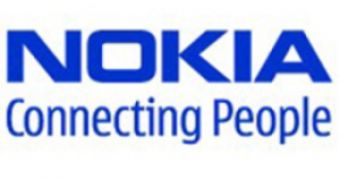A recently published report from Gartner, Inc. shows that the mobile-phone market will continue to have as its leader the Finnish handset vendor Nokia, which sold 441 million phone units in 2009, and that registered a 2.2-percent drop in market share when compared with the previous year. The research firm also notes that the worldwide market went up 8.3 percent in the fourth quarter of 2009, when compared with the same time frame the previous year, but that it went down 0.9 percent for the entire year, reaching only 1,211 billion units in 2009.
“The mobile devices market finished on a very positive note, driven by growth in smartphones and low-end devices,” Carolina Milanesi, research director at Gartner, said. “Smartphone sales to end users continued their strong growth in the fourth quarter of 2009, totaling 53.8 million units, up 41.1 per cent from the same period in 2008. In 2009, smartphone sales reached 172.4 million units, a 23.8 per cent increase from 2008. In 2009, smartphone-focused vendors like Apple and Research In Motion (RIM) successfully captured market share from other larger device producers, controlling 14.4 and 19.9 per cent of the worldwide smartphone market, respectively.”
According to Gartner, the competition on the market affected the average selling prices (ASPs), but the research firm expects ASPs to stabilize during the ongoing year due to a better economic environment. In addition, the report also shows that three of the top five mobile-phone makers in the world registered a decline in 2009, including Nokia, Motorola and Sony Ericsson. Moreover, it seems that the top five vendors also lost market share to Apple and other vendors, as their combined share went down to 75.3 percent in 2009, compared with 79.7 in 2008.
“Nokia will face a tough first half of 2010 as improvement to Symbian and new products based on the Meego platform will not reach the market well before the second half of 2010,” Ms Milanesi added. “Its very strong mid-tier portfolio will help it hold market share, but its ongoing weakness at the high end of the portfolio will hurt its share of market value.” While Nokia declined last year, Samsung went up during the time frame, due to improved channel relationships, a rich mid-tier portfolio and a focus on the needs of individual markets.
In the smartphone OS market, Symbian remains a leader, but it faces an increased competitiveness from rivals like RIM and Apple. The Symbian Foundation has announced the launch of Symbian^3, which should arrive on handsets in Q3, and that will be followed by the Symbian^4 later this year, with devices expected to land next year. “Symbian had become uncompetitive in recent years, but its market share, particularly on Nokia devices, is still strong. If Symbian can use this momentum, it could return to positive growth,” Roberta Cozza, principal research analyst at Gartner, shared. Additional details on the report are available here.

 14 DAY TRIAL //
14 DAY TRIAL //